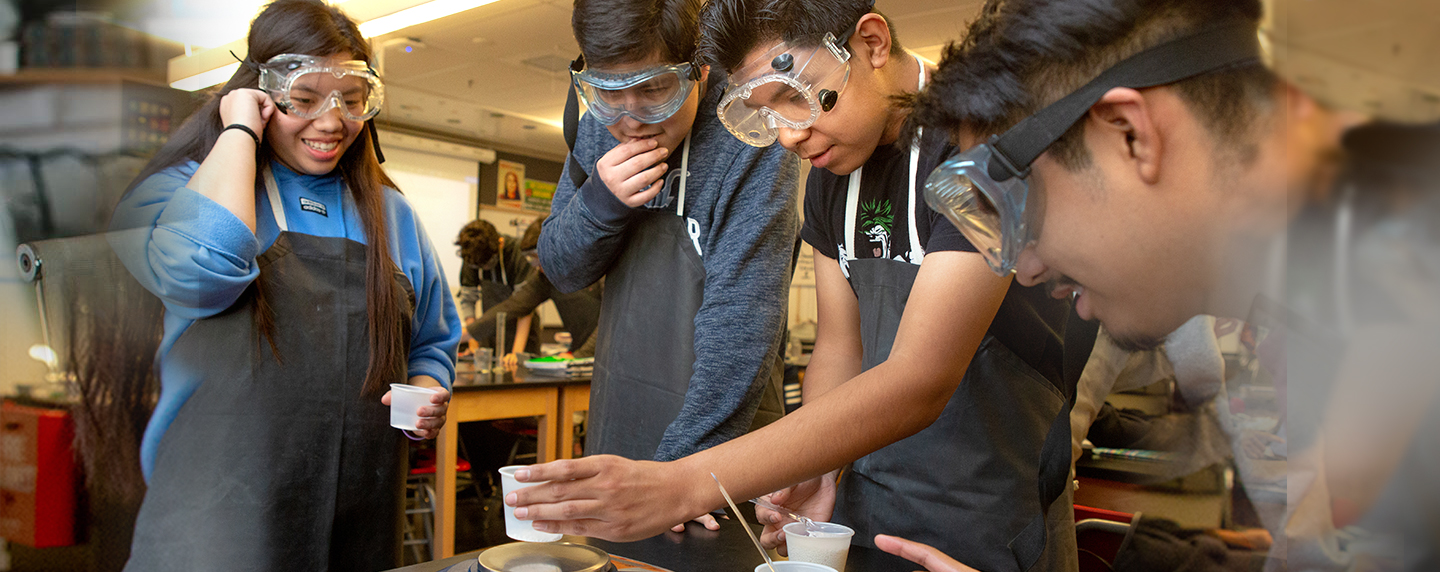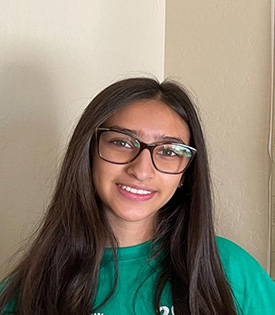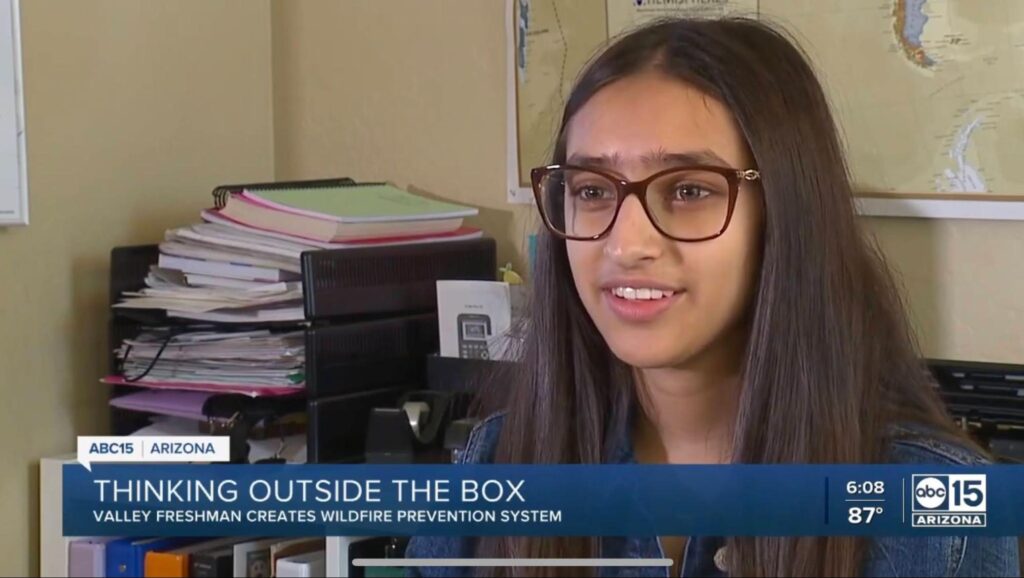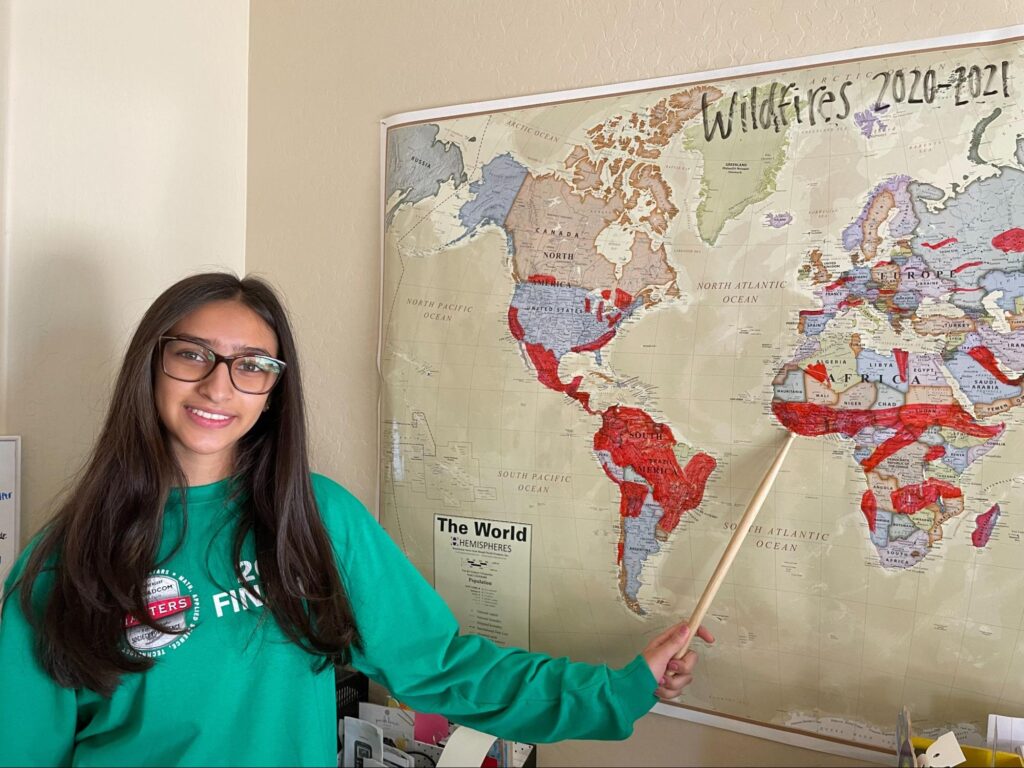
Stories of Impact
Back to In Action / Prisha Shroff, Student
Prisha Shroff
Sophomore, Hamilton High School, Chandler, AZ
In 2020, while driving from Los Angeles to their home in Chandler, Arizona, Prisha Shroff and her family encountered a massive wildfire and were forced to turn back. The experience set Prisha on a path to help change the world.
She remembers thinking, “This isn’t just a small problem, it’s a global problem,” and decided to find a way to help.
The opportunity came through her middle-school science fair affiliated with the nonprofit Society for Science. For her project, Prisha designed a system by combining A.I. with satellite imagery from NASA and NOAA to predict potential wildfire hotspots and detect active fires.
Now 16, Prisha is working to include a function that would deploy a drone to an active fire and spray the area with retardant. “Ideally, I want to integrate this with our current wildland departments and fire stations,” she says.
Her innovative idea brought her to Society for Science’s Broadcom MASTERS (now known as Thermo Fisher Scientific Junior Innovators Challenge), the country’s premier middle-school STEM competition.
In 2021, Prisha received the Lemelson Award for Invention, which recognizes competition finalists working on a promising solution to real-world problems.

Prisha invented a system that predicts, detects, and suppresses wildfires using AI and satellite imagery
My definition for an inventor is somebody who likes to create new things, to solve problems, or to solve something that they see in their everyday life.
What started you down the path of STEM and invention? And what were some of the ideas or people who helped shape your interest in this topic?
For me, there are two things. My mom gave me an Arduino board when I was younger, and I was like, “How does it work? How can this small computer somehow tell the clock what time it is?” That was when I realized the power of asking questions. After that, I went to a project-based elementary school, where they introduced us to the scientific method and the engineering design process. We built golf courses, we had a shark tank, a Maker Faire, all of that kind of stuff — it was all stepping stones to getting to where I am today.
What is your invention, and how does it work?
I created an A.I.-based wildfire prevention, detection, and suppression system that uses satellite and meteorological data from NASA and NOAA to predict hotspots — areas where wildfires can occur in the future. It also detects active wildfires. And I’m working on a feature that sends a drone to that location to spray fire retardant so we can prevent and suppress fires.
What’s your vision of an inventor?
My definition for an inventor is somebody who likes to create new things, to solve problems, or to solve something that they see in their everyday life.
I think that you can still be an inventor even if you create a catapult out of popsicle sticks. That’s inventing, and so is creating a wildfire prevention system. All it is is creating something new.

What difference do you hope to make in the world?
First, by creating solutions to solve different problems that we see. Second, I really want to help with climate change and global warming, because that’s a big part of our world today and a big problem. This is our planet, we should take care of it. I also want to change the world and make it a better place by giving opportunities to kids who don’t get the same opportunities that I get, in terms of education and resources.
What does a great teacher or mentor mean to you?
They mean a lot to me, because I think that to create a project like this, you really need supporters and people that help you along the way. If something doesn’t work and you feel like giving up, they’re there to help you keep going. And I think that that’s really important, especially when you’re younger, trying to create a solution to a big problem.
You don’t need to change the whole world, but you can still change someone’s whole world.
What do you say to young people who aspire to be an inventor?
My motto is: Be curious, dream big, and never give up. Don’t just hope something happens — you should strive to make it happen. And I think that if you live by that every single day, you can definitely make an impact. Also, you don’t need to change the whole world, but you can still change someone’s whole world. And I think that if everyone changes someone’s whole world, then we can really change the entire world.

